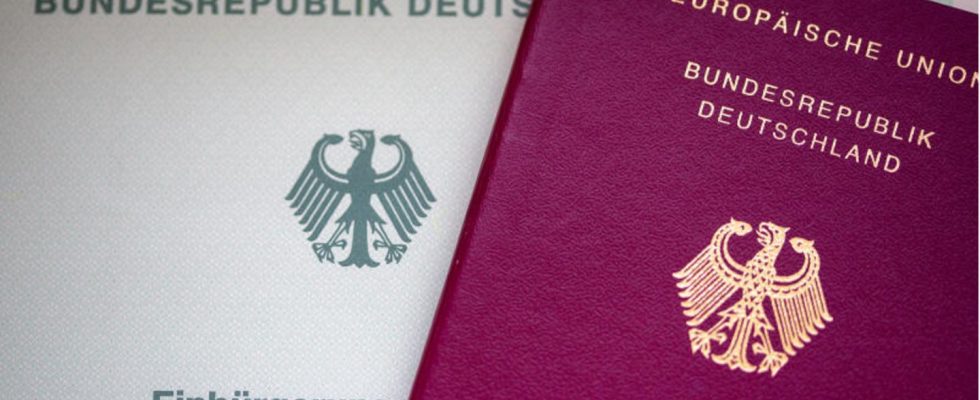Bill in Cabinet
Deadlines, double passport, language test: This is what the reform of citizenship law provides for
The path to the naturalization certificate and the German passport should be easier
© Fernando Gutierrez-Juarez / DPA
The way to the German passport should be easier. With a reform of nationality law, the traffic light coalition wants to make naturalization easier – and the double passport is also coming.
The traffic light coalition wants to reform citizenship law. The draft law, which is to be passed by the cabinet this Wednesday, provides for simplifying naturalization and dual citizenship To allow citizenships in principle. On the other hand, the government wants to make it more difficult to naturalize people who cannot earn their own living or who have already committed criminal offenses in Germany.
What the reform of the nationality law envisages:
naturalization period
People from abroad who have been living legally in Germany for a long time should in future be able to apply for a German passport after just five years. So far, the period has usually been eight years. In the case of “special integration achievements”, naturalization should even be possible after three years. This can be, for example, good language skills, voluntary work or very good performance at school or at work.
double pass
So far, with a few exceptions, the principle has applied: Anyone who takes on German citizenship must give up their old citizenship. In future, multiple citizenship should be possible in principle. The draft points out that many immigrants have been reluctant to give up their old citizenship – also because of emotional ties to their country of origin or that of their parents.
Children
In future, all children born in Germany to foreign parents should receive German citizenship without any further reservations if at least one parent has lived legally in Germany for more than five years. Previously, the deadline was eight years. In principle, children born in Germany can obtain and permanently retain German citizenship and the citizenship of their parents.
linguistic proficiency
Special relief should apply to members of the so-called guest worker generation, who have often been living in Germany for decades. In the future, these older migrants should no longer have to take a written German test in order to be naturalized. Proof of oral language skills should suffice. They should also no longer have to take a written naturalization test. With these simplifications, the “lifetime achievement” of this older generation should be honored, according to the draft. They apply to people who came to the Federal Republic before June 1974 or to the former GDR before 1990 as contract workers.
commitment to the constitution
The commitment to the free democratic basic order that has already been demanded is specified. The draft makes it clear that “anti-Semitic, racist, xenophobic or other acts motivated by inhumanity” are incompatible with the basic law’s guarantee of human dignity. The planned reform will introduce a new “transmission regulation”: The public prosecutor’s office must inform the naturalization authority on request whether someone who is applying for a German passport has already been convicted of a relevant crime.
livelihood
In principle, only those who can support themselves and dependent family members from their own means should receive German citizenship. However, there are a number of exceptions, for example for former “guest workers” who came to Germany before 1974 or former GDR contract workers, as well as for everyone who has worked full-time for at least 20 months in the past two years and theirs Spouses or registered life partners in a family community with at least one child.
naturalization ceremony
The naturalization certificate should always be handed over at a public ceremony.
climate change
What the weather was like in Germany 50 years ago – and how it will be in 2070
Twelve million people in Germany have foreign citizenship
The Federal Ministry of the Interior puts the number of people living in Germany with foreign citizenship at around twelve million. Around 5.3 million of these have been in Germany for at least ten years.
According to the template, the double passport has long since become the norm in practice in Germany: Of the people who were naturalized in 2021, 69 percent had at least one other citizenship.
The draft law is now being discussed in the Bundestag and Bundesrat. However, it does not require the approval of the Bundesrat.

